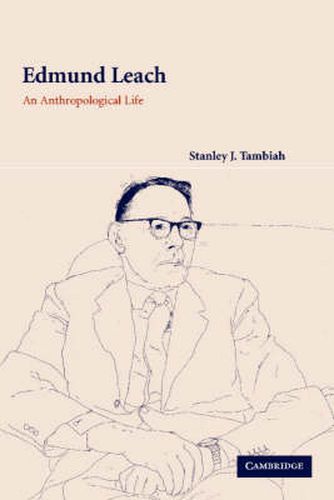Readings Newsletter
Become a Readings Member to make your shopping experience even easier.
Sign in or sign up for free!
You’re not far away from qualifying for FREE standard shipping within Australia
You’ve qualified for FREE standard shipping within Australia
The cart is loading…






Stanley J. Tambiah discusses the life of Edmund Leach (1910-1989), one of Britain’s foremost social and cultural anthropologists, and a man of extraordinary versatility, originality and intellectual breadth. His substantial contributions to anthropology deal with topics including kinship and social organization, hill tribes and valley peoples, tenure and peasant economy, aesthetics, British structural-functional methodology, the structuralism of Levi-Strauss, biblical narratives and the myths of Classical Greece. Leach was not wedded to any settled orthodoxy: what makes his work exciting is his experimentation with new ideas, and his expansions of the horizons of the discipline. His distinctive view of the comparative method allows him to transcend the stale dichotomy between ‘them primitives’ and ‘us moderns’, finding instead a dialectic between ‘us’ and ‘them’ which opens up the possibility for illuminating common human propensities and capacities.
$9.00 standard shipping within Australia
FREE standard shipping within Australia for orders over $100.00
Express & International shipping calculated at checkout
Stanley J. Tambiah discusses the life of Edmund Leach (1910-1989), one of Britain’s foremost social and cultural anthropologists, and a man of extraordinary versatility, originality and intellectual breadth. His substantial contributions to anthropology deal with topics including kinship and social organization, hill tribes and valley peoples, tenure and peasant economy, aesthetics, British structural-functional methodology, the structuralism of Levi-Strauss, biblical narratives and the myths of Classical Greece. Leach was not wedded to any settled orthodoxy: what makes his work exciting is his experimentation with new ideas, and his expansions of the horizons of the discipline. His distinctive view of the comparative method allows him to transcend the stale dichotomy between ‘them primitives’ and ‘us moderns’, finding instead a dialectic between ‘us’ and ‘them’ which opens up the possibility for illuminating common human propensities and capacities.